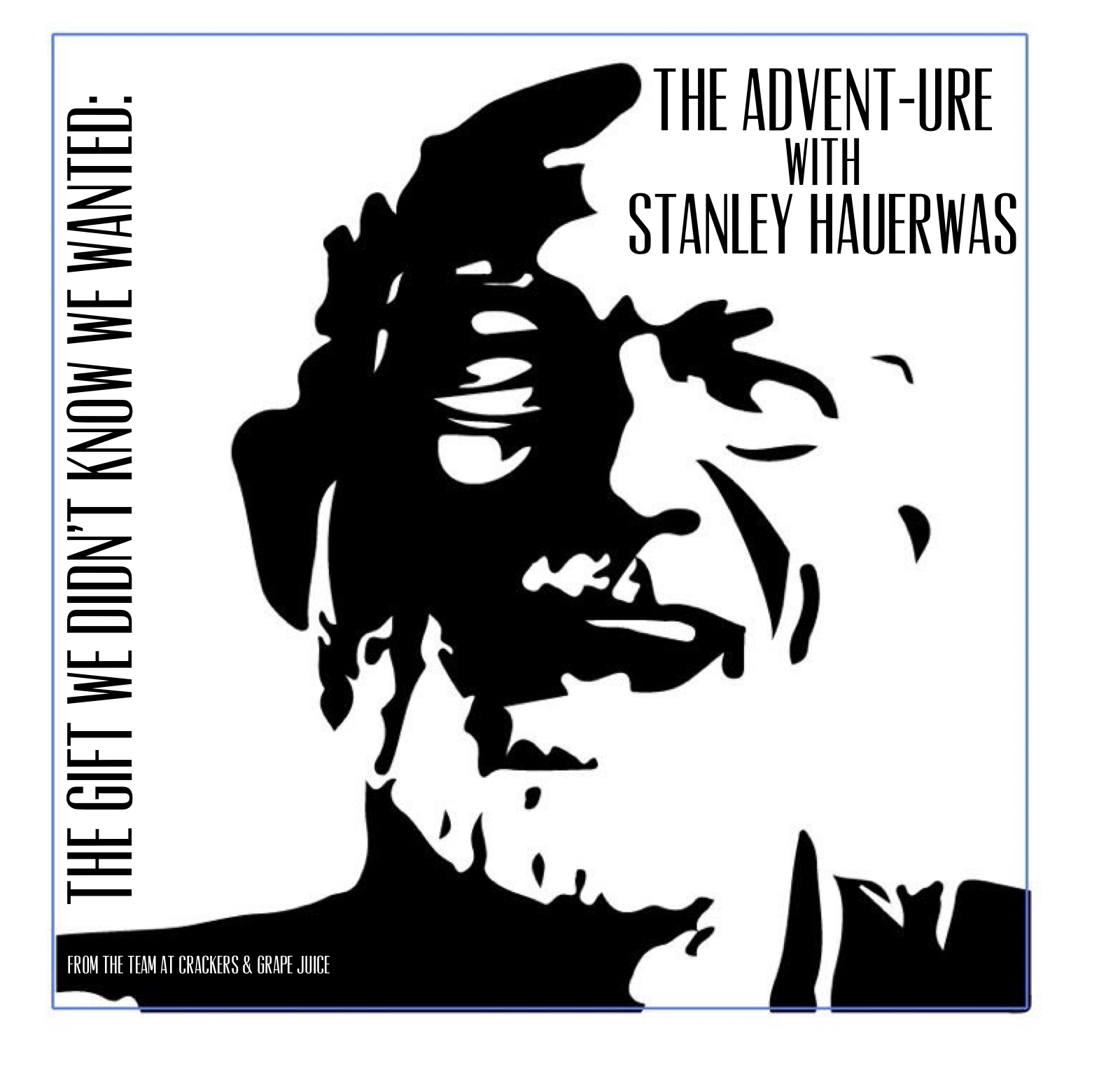
Stanley Hauerwas writes in his collection, Without Apology, that Advent is a season in which Christians play at waiting. That is, Advent is a time when we pretend to be waiting, recapitulating Israel’s exilic longing as our own. Despite the readings from the prophets, the purple sentinel-like candles, and the melancholy minor key hymns, Christians, Hauerwas notes, are not quite sure what it means for us to wait during Advent.
After all, what distinguishes Christians from Jews is the fact we believe that for which Israel waited has already arrived. The day promised by the prophet Isaiah, for example, a day when, “the root of Jesse shall stand as a signal to the people; the nations shall inquire of him, and his dwelling shall be glorious,” has come. The Kingdom of God prophesied by the John the Baptist has come in the one John identified as the Lamb of God who takes away the sins of the world— the Kingdom and the King are one and the same.
Advent is the time when we play the waiting game because we believe the promise has already been fulfilled.
The Gentiles, by the baptism of Christ’s death and resurrection, have been grafted into the People of God. The Powers of Sin, Death, and the Devil have been defeated by Christ’s cross; there is therefore no condemnation. Likewise, the Great High Priest has sat down forever from his work because the judge became the judged, offering a perfect once-for-all sacrifice. And having ascended to the Father, the lamb slain from the foundation of the world sits on the throne as the world’s true King and from thence he shall come again to the quick and the dead. “We Christians believe the King and the Kingdom have come,” Hauerwas writes, “which means we are not all sure what it means for us to wait.” If the long-expected messiah has already arrived in the ark of Mary’s womb, if Emmanuel has already ransomed us from captivity to the Babylon of Sin and Death, then to what end do we break out the purple paraments every Advent and rehearse a yearning that’s already been fulfilled in the flesh?
As Hauerwas observes in his latest book, Minding the Web: Making Theological Connections,
“Israel learned to wait by God’s gift of the Law that made her a people who had to learn to live out of control. To be sure, she was often less than faithful to what her Lord had given her, but through the ups and downs of her history, she learned what it means to wait on the Lord.”
The Law, in other words, was a gift through which Israel learned to wait on the Lord; so that, through such waiting, Israel could learn faithfulness. But the gift we’ve been given in Jesus Christ is not the Law but the Gospel. As John puts it in the closet thing to a nativity story his gospel has got, “The Law was given through Moses, but Grace and Truth have come in Jesus Christ.” If the Gospel of Grace (which is the glad tiding of the Law’s fulfillment for you) is the gift we’ve been given, then how might waiting— resting— with this gift glean from us a deeper faithfulness?
What’s the wisdom, to say nothing of the utility, in pretending to wait for a promise that has already come— a promise that is no further away than Sunday’s bread and wine?
Robert Farrar Capon opens littlest and least known book, The Foolishness of Preaching: Proclaiming the Gospel against the Wisdom of the World, with a screenplay. Capon uses a set-up you’d expect on Bay Watch first to script a typical presentation of the so-called gospel. A woman is drowning in the seaside. The lifeguard/hero/Christ-figure swims out through the rough waves, fights the undertow, then drags the woman to shore, and depleted of all energy, still manages to give her mouth-to-mouth resuscitation. She was as good as dead, until … the lifeguard named Jesus saves her. That’s one version gospel, which is really no gospel at all, Capon says, crumpling up the script and tossing it in the rubbish bin.
For take two, the lifeguard rushes down off his chair, swims out to the drowning woman, grabs her, and never lets her out of his grip. And then the lifeguard goes down with the drowning woman. Down to the ocean’s floor. Then, as the screenplay notes, the camera pans across the startled and disturbed onlookers and draws still, focusing on a spare note left behind by the lifeguard.
The note reads “She’s safe in my death.”
Capon goes on to apply to preachers and hearers of the Gospel:
“Our preachers tell us the wrong story entirely. They can’t bring themselves to come within a country mile of the horrendous truth that we are saved in our deaths, not by our efforts to lead a good life. Instead, they mouth the canned recipes for successful living they think their congregations want to hear. It makes no difference what kind of success they urge on us: ‘spiritual’ or ‘religious’ success is as irrelevant to the Gospel as is success in health, money, or love. Nothing counts but the cross. But for even a sadder thing, on the rare occasions when they do get around to proclaiming the outrageousness of salvation by death of the divine Lifeguard, they can do it for no more than fifteen minutes. In the last five minutes of the sermon they meekly take back with the right hand of plausibility everything they so boldly set forth with the left hand of paradox.”
As though we can’t be trusted week in and week out, the Church every Advent and Lent takes us through something not unlike Capon’s lifeguard parable.
We’re all born lawyers. With the Law hardwired onto our hearts, as Paul says, we all want to be told what to do and then try our damndest to do it. We’re all born lawyers. We have to be taught the Gospel. Better put, we need to learn to trust the message that we are justified before God not based on what we do for God but based on what has been done for us by the God-Man.
The Gospel of grace comes so unnaturally to us that first it had to come to us as Jesus Christ. Perhaps this is why we pretend every Advent, playing at an expectation that’s already been met and acting as though we’re waiting on a promise that hasn’t already come.
If we need an every Sunday reminder of the Gospel, then surely we need this shot of seasonal catechesis. Maybe the willful amnesia of the Advent season is meant to remind us, who insist that it’s got to be otherwise, that salvation is not about a path that we make for ourselves to God but about God coming to us. Maybe we spend every year hearing again Isaiah and John the Baptist speak of God’s highway in the desert so that we, who are hellbent on self-righteously bulldozing another outband, glorybound lane to that highway, will finally learn to trust the happy news of God’s one-way love.
